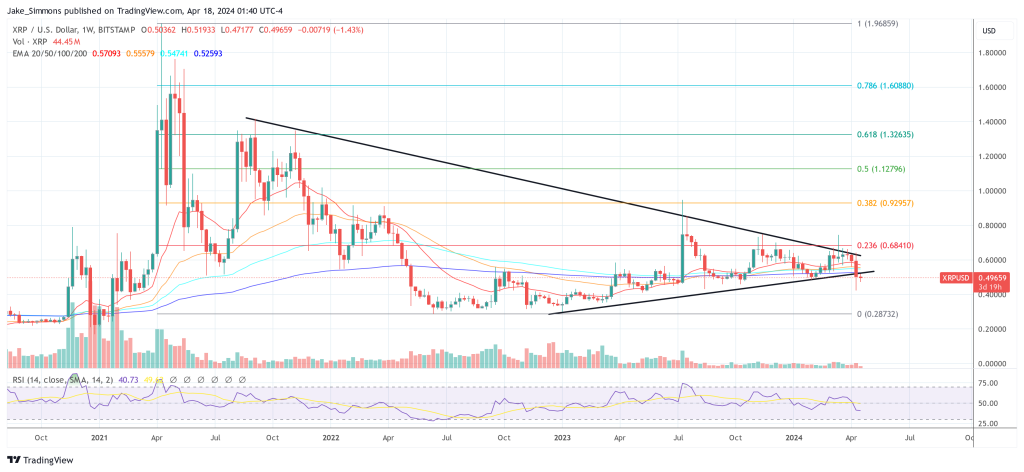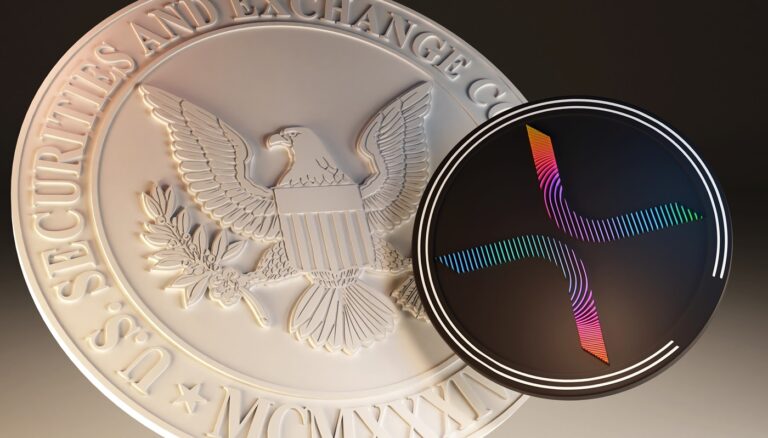The XRP lawsuit between Ripple Labs and the United States Securities and Exchange Commission (SEC) over the status of XRP as a security is set to go to the United States Supreme Court. This anticipation was reinforced by a recent decision in the Coinbase case, which favored the SEC, presided over by Judge Katherine Failla of the Southern District of New York.
Is XRP Lawsuit Going to US Supreme Court?
Ladan Stewart, former head of the SEC’s Crypto Litigation Unit, spoke on a panel at Columbia Business School, revealing this insight into the agency’s regulatory stance and future directions. Although he has left the SEC, Stewart’s comments still reflect deep connections to the agency’s strategies and their implications for the crypto industry.
During the panel, Stewart acknowledged the impact of Judge Failla’s ruling in the Coinbase case, saying, “It’s probably going to give the SEC the kind of comfort they need to proceed as they have been.” , and emphasized that the agency “is not going to back down from pursuing regulatory action in the crypto space.”
Notably, it also increased the likelihood that one of the lawsuits filed against companies like Ripple and Coinbase will go to the Supreme Court to resolve fundamental questions about the definition of securities in the crypto space, such as Fortune reports. “Then there will be some sort of definitive clarity on this issue,” Stewart said.
The discussion also touched on the broader implications of how digital assets are treated under US law, highlighting ongoing disputes over whether the tokens themselves are securities or whether c It is the manner of their sale which creates an investment contract. Stewart clarified: “The underlying asset is not a security, but its offering and sale. »
Panelists, including Rebecca Rettig of Polygon and Lewis Cohen of DLx Law, presented contrasting viewpoints. Rettig, Polygon’s legal counsel, pressed Stewart’s practical implications, specifically asking: “So what are you recording?” Stewart’s response that the token and “everything around it” counts for security status did not satisfy the panelists, highlighting a lingering area of contention between the crypto industry and regulatory agencies.
Lewis Cohen of DLx Law argued that the SEC’s approach could lead to regulation by enforcement – a criticism often leveled by crypto advocates. Cohen questioned the practical application of securities law as interpreted by Justice Failla in the case recent decision by Coinbasewhich suggests that this may not correspond to the realities of digital asset markets.
The discussion highlighted a fundamental industry dilemma: How can crypto companies operate? within the framework of the law if the rules remain unclear or impractical? This issue remains at the heart of ongoing disputes and is central to the broader dialogue around the future of cryptocurrency regulation.
Stewart’s final comments at the event underscored the civil but charged nature of these discussions: “We’re all friends,” she concluded, marking a polite but firm acknowledgment of the ongoing debates that are likely to shape the future of crypto regulation in the United States. States.
Ripple CEO Garlinghouse previously expressed his strong commitment to fighting the SEC over the status of XRP, saying, “We will be in it until the end.” Additionally, Stuart Alderoty, Ripple’s Chief Legal Officer, note Last year, the Supreme Court consistently ruled against the SEC in various cases over the past several years.
At press time, XRP was trading at $0.49659.

Featured image from Shutterstock, chart from TradingView.com


